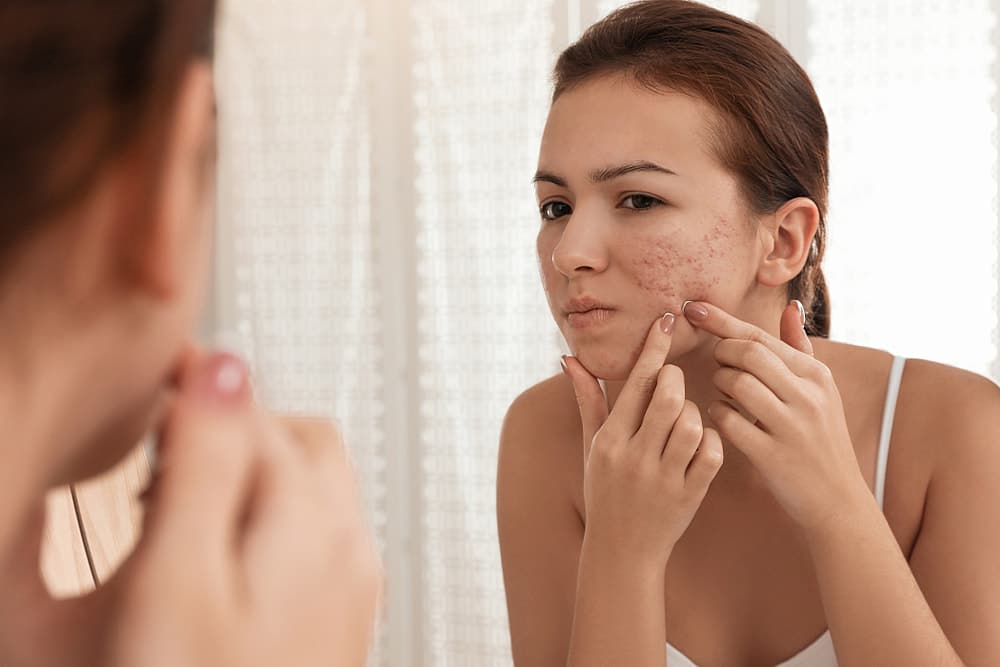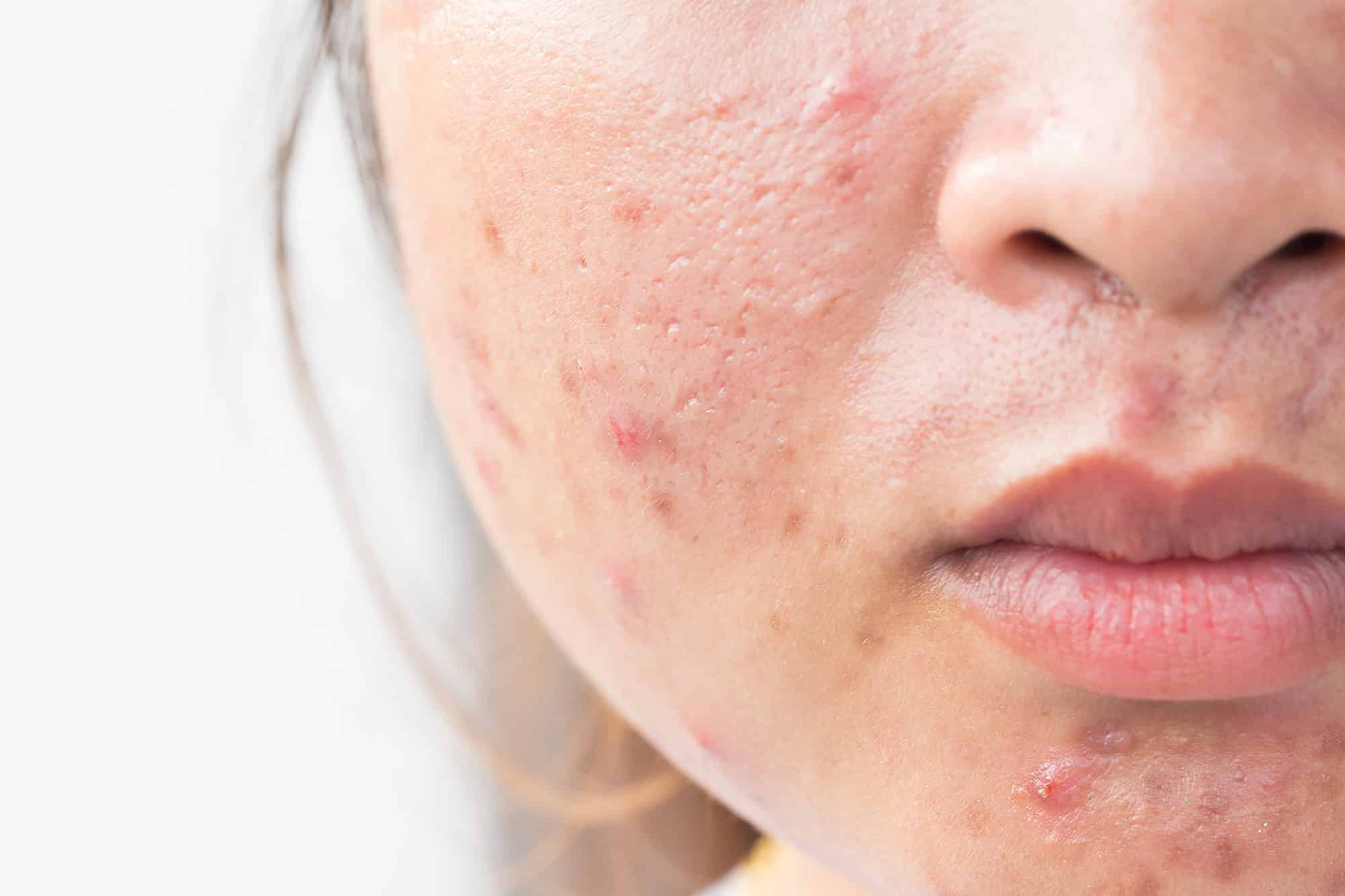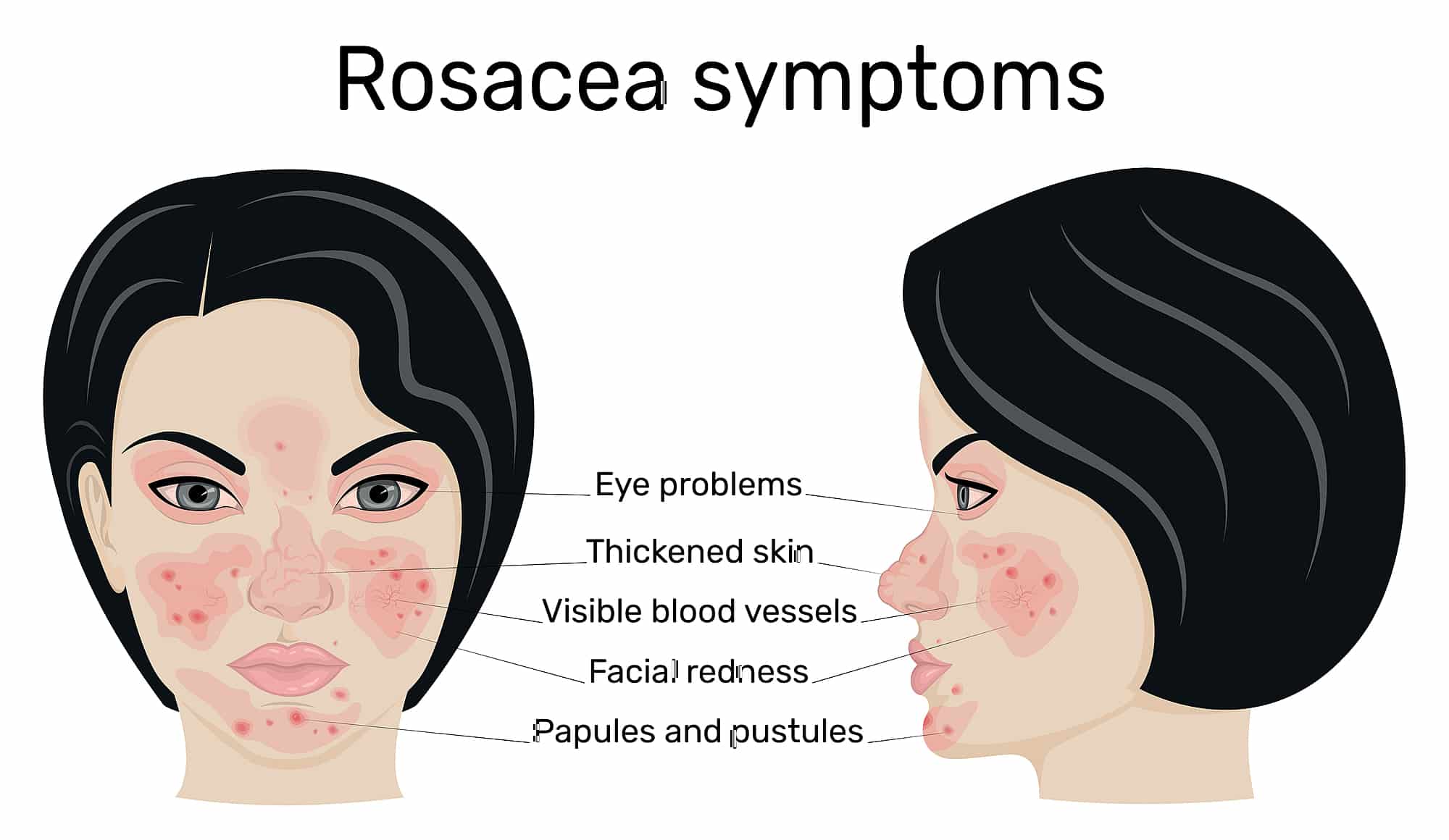
What Causes Itchy Rosacea And How To Soothe It
- June 9, 2022


Researchers estimate that around 5.46% of adults worldwide live with rosacea. This condition is known for making your face appear red and blotchy, with some mistaking it for acne or psoriasis.
While rosacea is not usually itchy, some individuals do experience it. Rosacea typically does not cause the itching, and the proper anti-itch treatment depends on the underlying issue. Which is why it’s best to consult an experienced doctor for an accurate diagnosis when you suspect you have rosacea.
With this in mind, here’s what you need to know about rosacea and the causes of itchy rosacea.
Rosacea is a common skin condition that usually affects the face, turning the nose, chin, cheeks and forehead red. The redness may worsen with time, taking on a rosy aspect as tiny blood vessels become visible on the face.
It is important to seek rosacea treatment in Singapore to prevent solid red bumps and pus-filled pimples from developing. These symptoms may worsen further and lead to rinophyma, a condition where the nose becomes swollen.
Rosacea can also affect the eyes, causing them to feel itchy and look bloodshot or watery. Styes could develop around the eyes at the same time, too, and lead to ocular rosacea.
While there is no permanent cure for rosacea, there are various treatments to manage the symptoms. Laser treatment, electrosurgery, dermabrasion and prescription medicine, can help reduce the number and intensity of rosacea flare-ups.
Those who have a fair complexion and a tendency to blush easily are more susceptible to developing rosacea. While the condition can sometimes affect teenagers and children, adults over the age of 30 are more likely to be affected. Rosacea is also more likely to affect those with a family history of the condition.
It has also been found that women are more likely than men to be affected by Rosacea, although men tend to experience more severe symptoms. It is likely because men tend to put off seeking rosacea treatment until their condition is severe.

Rosacea symptoms can differ widely from person to person. The majority of people do not experience all the possible symptoms at the same time.
Most rosacea sufferers experience frequent blushing or flushing. Fluctuating redness tends to be the first symptom of rosacea for most people.
Persistent face redness may resemble a lingering blush or sunburn.
Small red solid bumps or pus-filled pimples frequently form on the faces of people with rosacea. The pimples occasionally resemble acne, although no blackheads are present. There may be stinging or burning in affected areas.
Most individuals with rosacea have visible little blood vessels on their skin.
Secondary Signs and Symptoms Of Rosacea
Those with rosacea may have irritated eyes that appear watery or bloodshot. Ocular rosacea is a disorder that can cause styes, as well as redness and swelling of the eyelids. If extreme symptoms go untreated, they may damage the cornea and cause vision loss.
Some rosacea patients may experience rhinophyma, a disease where the skin thickens and enlarges due to extra tissue. The nose will typically have a bulbous appearance due to this disorder.
Rosacea is not always accompanied by itchiness but some people experience this more than others. The itching is not usually caused by the rosacea itself, though, but by other underlying conditions. The rosacea may interact with or aggravate these conditions to worsen the itchiness. Finding out what these conditions are is crucial to relieving the itching.
Ingrown hairs occasionally irritate hair follicles. These can be aggravated further when they are inflamed during rosacea and infected with the bacteria staphylococcus, leading to folliculitis.To prevent folliculitis, men with rosacea should be careful while shaving, which can irritate hair follicles. They can use a new blade each time they shave, limit the number of times they shave or avoid shaving altogether.
You may need to make adjustments to your home environment if dry skin is the root of your rosacea itch. A humidifier could provide some itch relief. Besides that, avoid wearing wool and tight clothing which can aggravate itchy, dry skin.
Some ingredients in skin care products can irritate and dry up your skin, causing an itch which is aggravated by rosacea. Some ingredients that can cause itchiness are:
Regardless of the exact contents in a product, it is best to avoid it completely if you notice any itching after using it.
Thankfully, there are various ways to soothe rosacea itch depending on the cause of it. The following are some methods to soothe the irritation.
Topical antibiotics are most effective in treating rosacea itch that is linked to skin care products. Some topical antibiotics include:
Calming lotion not only calms down the flare-ups but also moisturises the skin at the same time. In addition to that, calming lotion can help lessen the itch that men with rosacea experience when shaving.
Apply moisturiser frequently, especially after a bath. Make sure,however, to check the label of the product you’re using to be sure it doesn’t include any substance that could cause irritation. Topical corticosteroids, such as hydrocortisone, should be avoided because prolonged usage of corticosteroids may worsen your rosacea and cause adverse effects like skin thinning.
If you’re seeking to get your first treatment for rosacea today, it is crucial to get a trained medical professional to do it for you. The doctors at SL Aesthetic Clinic will be able to assess if your condition is suitable for a specific treatment. For more information, contact us or call us at +65 6235 3246.
Like what you read? Share them!